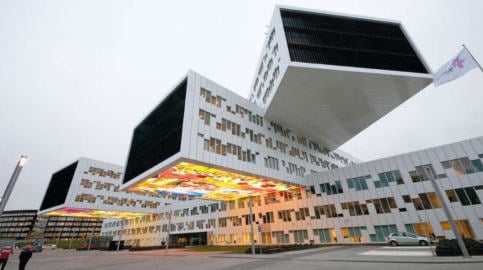STATOIL
Statoil named among world’s climate villains
Norwegian oil giant Statoil has been named as one of just 90 companies responsible for nearly two thirds of greenhouse gas emissions since the start of the industrial revolution.
Published: 21 November 2013 09:34 CET

Statoil's new Oslo offices - Statoil
According to data from a new report from the Climate Accountability Institute (CAI), published in the Guardian newspaper, Statoil has produced a massive 4.37 gigatonnes of CO2 since it was founded in 1972 — accounting for 0.3 percent of the total 914 gigatonnes of CO2 emitted between 1751 and 2010.
This, more than the world can recycle in a year, puts it in seventh place in Europe, after BP, Shell, and British Coal from the UK, Total from France, and ENI And RWE from Germany.
"There are thousands of oil, gas and coal producers in the world," the report's author Richard Heede told the Guardian. "But the decision makers, the CEOs, or the ministers of coal and oil, if you narrow it down to just one person, they could all fit on a Greyhound bus or two."
The largest single producer was US oil giant ChevronTexaco, which has produced 46 gigatonnes of CO2 over its life, 3.2 percent of the total, followed by Saudi state oil giant Saudi Aramco, which has produced 42.82 Gt of CO2, 2.95% of the total, and ExxonMobil, which has produced 41.6 Gt.
CAI has spent eight years working on the research, which the climate campaigner Al Gore described as a "crucial step forward".
Url copied to clipboard!


 Please whitelist us to continue reading.
Please whitelist us to continue reading.
Member comments